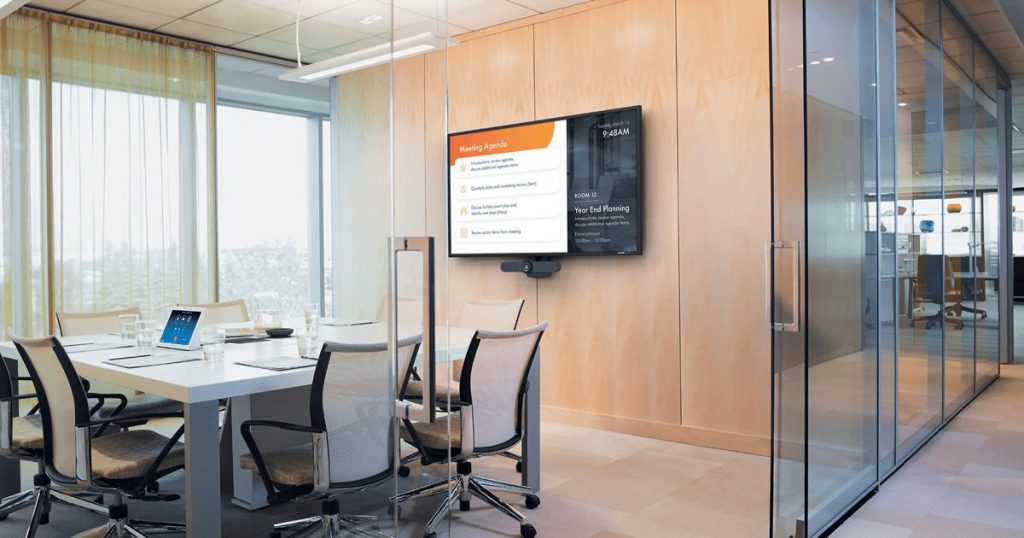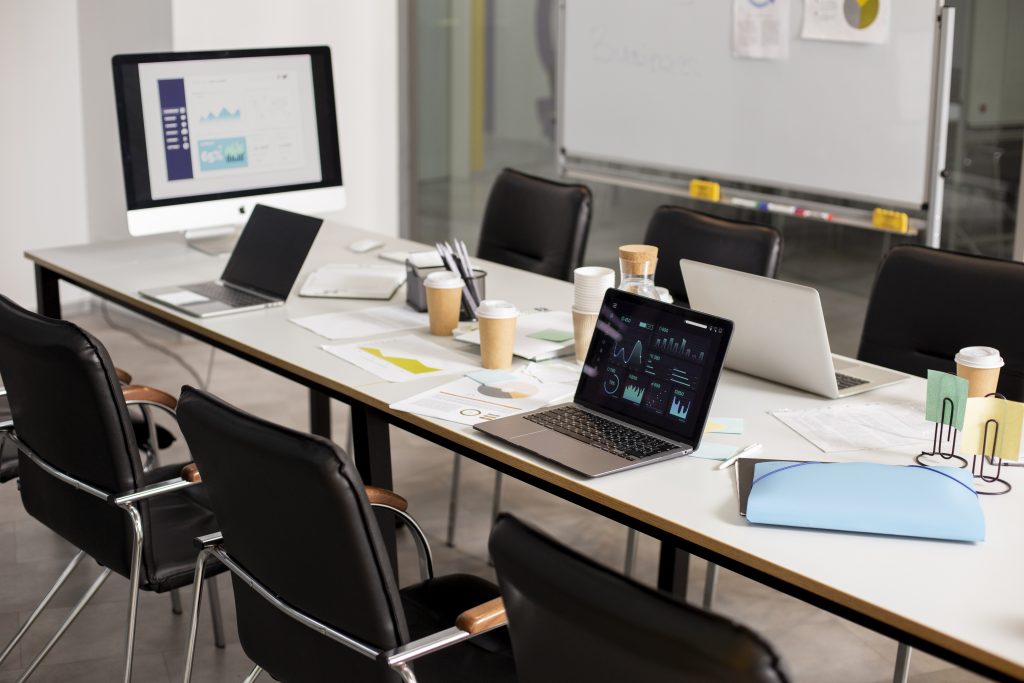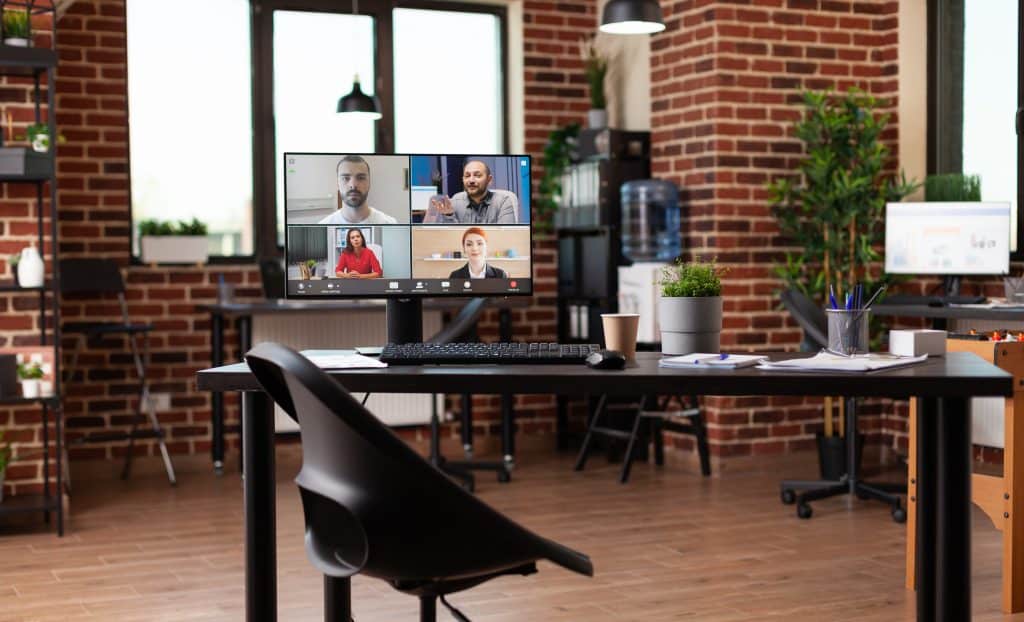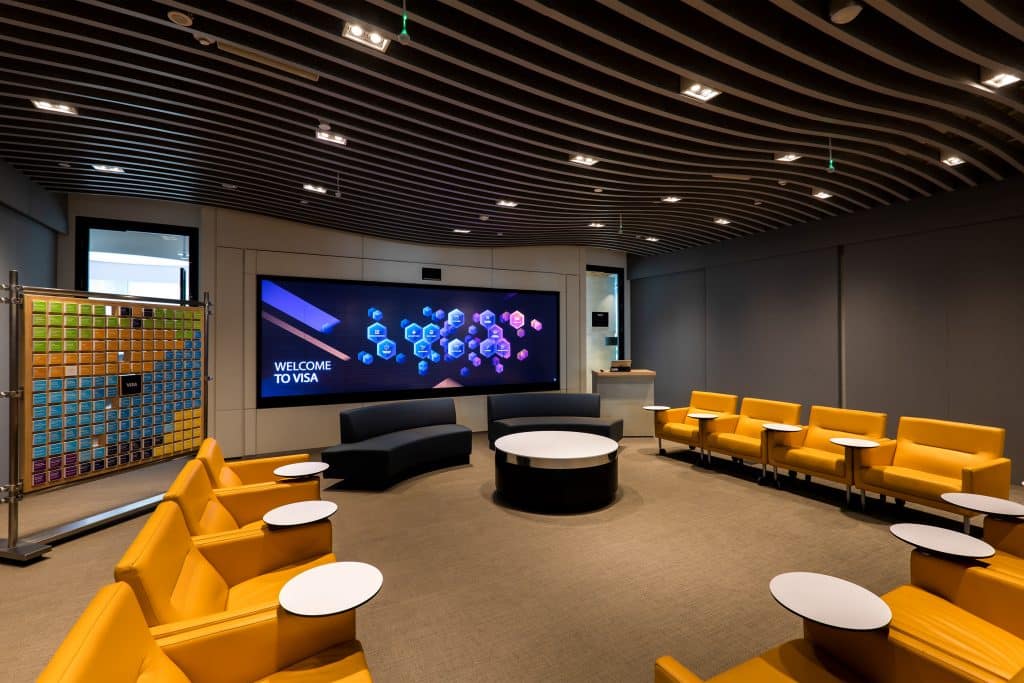Introduction
Request a meeting room can make all the difference when it comes to the success of your event, whether it’s a high-stakes business meeting, an educational workshop, or a community gathering. The perfect space not only suits your logistical needs but also sets the tone for the entire meeting’s atmosphere and productivity. Understanding the nuances of room selection, booking procedures, and the policies you need to navigate is crucial.
In this guide, we’ll walk you through every step of requesting a meeting room, from identifying the ideal type to understanding the booking process and preparing for your event. Our aim is to provide you with a comprehensive overview that ensures you find and secure a meeting room that meets all your requirements, backed by insights from industry experts and top resources like the Zoom’s detailed exploration of meeting room setups and uses (Zoom).
What You’ll Learn:
- Types of Meeting Rooms: From cozy spaces for small teams to large auditoriums for major events.
- Booking Procedures: How to navigate online systems and direct contact bookings.
- Room Preparation: Tips for setting up the perfect meeting environment.
- Troubleshooting Tips: Handling common last-minute issues that may arise.
Stay tuned as we dive deeper into each of these aspects, ensuring you’re fully equipped to book the best meeting room for your needs.
Understanding Different Types of Meeting Rooms

Choosing the right type of meeting room is crucial for the success of your event. The space should not only fit your group size and technological needs but also complement the purpose of your meeting. Below, we explore various types of meeting rooms and their best uses to help you make an informed decision.
Small Meeting Rooms
- Capacity: Typically accommodates up to 10 people.
- Best for: Small team meetings, interviews, client consultations.
- Features: Often equipped with a round table, whiteboard, and teleconferencing facilities.
Conference Rooms
- Capacity: Can vary, generally designed for 15 to 50 participants.
- Best for: Business meetings, workshops, group presentations.
- Features: Equipped with large tables, projection equipment, and often advanced AV systems for seamless presentations.
Boardrooms
- Capacity: Designed for 10 to 20 people.
- Best for: Executive meetings, strategic planning sessions.
- Features: High-end furniture, state-of-the-art video conferencing, and often luxurious decor.
Auditoriums
- Capacity: Can host large groups, often hundreds of attendees.
- Best for: Large-scale presentations, conferences, educational seminars.
- Features: Stadium seating, stage, high-quality sound systems, and large screens.
Multi-Functional Spaces
- Capacity: Flexible, can be adjusted based on the event.
- Best for: Events requiring breakout sessions, workshops needing separate spaces.
- Features: Modular furniture, movable partitions, and adaptable technology setups.
When selecting a meeting room, consider the layout, accessibility, and any specific amenities you may need, such as catering options or technical support. Facilities like those offered by the Lewes Public Library provide a range of meeting rooms that cater to different group sizes and event types, ensuring that every meeting’s specific needs are met (Lewes Public Library).
How to Request a Meeting Room

Successfully requesting a meeting room involves understanding the different methods available and using them to your advantage. Whether you prefer the speed of online systems or the personalized touch of direct contact, knowing how to navigate these options can streamline your booking process and ensure you secure the perfect space for your event.
Online Booking Systems
Online booking systems are designed for convenience and efficiency, allowing you to reserve a meeting room with just a few clicks. Here’s how you can make the most of these systems:
- Step 1: Find the Booking Portal – Start by visiting the venue’s website. Most have a dedicated section for meeting room bookings.
- Step 2: Choose Your Room – Select the type of meeting room you need based on the size and facilities described in the website’s listings.
- Step 3: Check Availability – Enter your desired date and time to see if the room is available. Some systems offer a calendar view to simplify this process.
- Step 4: Provide Details – Fill in any required information such as contact details, the purpose of the meeting, and special requests.
- Step 5: Confirm Your Booking – Review all the details, and if everything is correct, confirm your booking. You will typically receive an email confirmation.
Platforms like the one offered by Zoom provide a user-friendly interface that guides you through each step, ensuring you don’t miss any important details (Zoom).
Direct Contact Methods (phone/email)
For those who prefer a more personal touch or need to discuss specific requirements, direct contact methods like phone calls or emails are ideal. Here’s how to effectively use these methods:
- Phone Calls:
- Prepare Your Information – Before calling, have all relevant information at hand, including potential dates, times, room preferences, and any questions you might have.
- Making the Call – Use the contact number provided on the venue’s website. Be clear and concise in your communication to ensure all details are understood.
- Confirmation – Ask for a confirmation number or email, and note down the name of the person you spoke with for future reference.
- Emails:
- Compose a Clear Email – Start with a subject line that is straightforward (e.g., “Meeting Room Booking Request”). In the body, include all pertinent details such as the date, time, number of attendees, and any specific room requirements.
- Follow-Up – If you do not receive a response within a reasonable time frame, consider sending a follow-up email or making a phone call.
Sites like the Lewes Public Library offer detailed information on their contact methods, making it easy to know whom to reach out to for booking inquiries (Lewes Public Library).
Using these methods effectively can help ensure that your meeting room booking process is as smooth as possible, allowing you to focus more on the content of your meeting rather than the logistics of securing a space.
Key Policies to Consider When Booking a Meeting Room

When booking a meeting room, understanding the venue’s policies is essential to avoid any surprises and ensure that your event goes smoothly. From cancellation rules to fees and usage restrictions, being aware of these policies can help you better plan your meeting and manage expectations. Below, we outline some of the most common policies you should consider.
Cancellation and Rescheduling Policies
- Advance Notice: Most venues require notification several days or weeks in advance if you need to cancel or reschedule. Understanding these timelines is crucial to avoid potential fees.
- Cancellation Fees: Some venues may charge a fee for cancellations or rescheduling, especially if done at short notice. Always check the terms before booking.
- Rescheduling Flexibility: Inquire whether it’s possible to reschedule your booking without incurring additional costs.
Fees and Charges
- Booking Deposit: Some venues require a deposit at the time of booking, which may or may not be refundable.
- Payment Terms: Understand when the full payment is due. Some places require full payment upfront, while others may allow payment after the event.
- Additional Costs: Be aware of potential extra costs, such as for AV equipment, catering, or special setup needs.
Rules for Room Use
- Capacity Limits: Each room will have a maximum capacity, which is often dictated by fire safety regulations.
- Food and Beverage Policies: Some venues allow external food and beverages, while others might require you to use their catering services.
- Technology and Equipment Use: Check what technology is provided and whether you can bring your own equipment. Some venues may charge extra for the use of their technology.
Special Permissions
- Accessibility Requirements: Ensure the venue meets any accessibility requirements for your attendees.
- Decorations and Signage: Some venues have strict rules about what decorations can be used and where signs can be placed.
- Alcohol Consumption: If your event includes alcohol, verify whether the venue permits it and if additional licenses are required.
As illustrated by the detailed policies provided by the Lewes Public Library, familiarizing yourself with such regulations ensures that all aspects of your meeting room booking align with the venue’s guidelines and legal requirements (Lewes Public Library).
Preparing for Your Meeting

Ensuring that your meeting runs smoothly requires more than just booking the right room. Preparation is key, and handling all the details in advance can greatly enhance the effectiveness and productivity of your gathering. Here are some crucial steps to take when preparing for your meeting.
Confirm Details
- Verify Reservations: Double-check your room reservation a day or two before the event to ensure all details are correct.
- Review Room Layout: Make sure the room setup meets your specifications, such as seating arrangements, table placements, and accessibility features.
- Finalize the Attendee List: Confirm how many people will be attending and make any last-minute adjustments to accommodations.
Technology Setup
- Test Equipment: Ensure that all technological equipment, like projectors, microphones, and video conferencing systems, are working properly.
- Provide Instructions: If attendees will use tech features, consider providing brief instructions or having a tech run-through before the meeting begins.
- Backup Plans: Always have a backup plan in case of technological failures. This could include having spare cables, a secondary projector, or alternative presentation methods.
Catering and Refreshments
- Order in Advance: If providing food and drinks, order them well in advance and confirm the delivery time and location.
- Dietary Restrictions: Be aware of any dietary restrictions among the attendees and cater to these needs accordingly.
- Setup and Cleanup: Arrange for early delivery to set up refreshments before the meeting starts and plan for prompt cleanup after the event.
Materials and Documentation
- Handouts and Materials: Prepare and print any necessary documents, handouts, or promotional materials.
- Digital Access: If using digital documents or presentations, ensure they are accessible and share them with participants ahead of time.
- Agenda Distribution: Distribute the meeting agenda beforehand so participants can prepare questions or discussion points.
On-site Coordination
- Arrive Early: Plan to arrive at the venue well before the meeting time to handle any last-minute arrangements or issues.
- Check Signage: Ensure that there are clear signs directing attendees to the meeting room.
- Point of Contact: Designate a point of contact for any issues that might arise during the event.
One valuable resource for understanding how to effectively set up meeting rooms is provided by platforms like Zoom, which outlines various room configurations and technical setups that can be adapted for different types of meetings and events Zoom Meeting Rooms (Zoom).
Troubleshooting Common Issues

Even the most well-planned meetings can encounter issues. Being prepared to address these problems quickly and efficiently can help maintain the flow of your event and ensure it remains productive. Below are some common issues that might arise during a meeting, along with strategies for troubleshooting them.
Technology Failures
- Audio/Visual Problems: Always test AV equipment before the meeting starts. Have basic troubleshooting steps handy, such as checking all connections, replacing batteries, or restarting devices.
- Wi-Fi Connectivity: Prior to the meeting, test the Wi-Fi strength in the meeting room. If possible, have a dedicated IT specialist on call or a hardline internet option as a backup.
- Presentation Glitches: Keep a USB drive with all essential presentation materials as a backup. Consider having an online backup accessible via cloud storage.
Time Management
- Running Over Time: Allocate a timekeeper who will monitor the meeting’s progress and give cues to speakers or participants to keep them on schedule.
- Delayed Start: If key participants are late, have a plan to either start discussions that don’t require their input or engage the attendees with preliminary content until everyone is present.
Participant Issues
- Unresponsive or Disengaged Attendees: Prepare interactive elements or discussion points in advance to encourage participation. Have a facilitator ready to direct questions to specific individuals to foster engagement.
- Disruptive Behavior: Set ground rules at the beginning of the meeting for decorum and participation. If disruptive behavior occurs, have a plan to address it politely and directly, maintaining a focus on the meeting’s goals.
Environmental Distractions
- Noise Disturbances: If external noise affects your meeting, consider having soundproofing measures in place or provide microphones to speakers to ensure they are heard.
- Room Comfort: Check the room temperature, lighting, and furniture arrangement beforehand. Make adjustments as needed to ensure the comfort of all participants.
Catering Mishaps
- Late or Incorrect Catering Orders: Always confirm orders the day before and have the caterer’s contact information on hand for quick resolution. As a backup, identify local vendors who can provide last-minute services if needed.
A useful resource for anticipating and managing common meeting disruptions is provided by the Lewes Public Library, which includes guidelines for meeting room use and troubleshooting advice on their website Lewes Public Library Meeting Room Policy (Lewes Public Library).
Conclusion
Successfully requesting and preparing for a meeting room involves more than simply picking a space. It requires careful planning, understanding the specific policies of the venue, preparing for technological needs, and being ready to troubleshoot common issues. By following the guidelines and advice provided in this article, you can ensure that your meeting not only runs smoothly but is also productive and achieves its intended outcomes.
Remember, the key to a successful meeting lies in:
- Choosing the Right Room: Match the space to the size and purpose of your meeting.
- Understanding Policies: Be well aware of cancellation rules, fees, and usage regulations to avoid any surprises.
- Preparation: Arrive early, test technology, and set up the room to suit your needs.
- Troubleshooting: Have backup plans for technology and catering, and strategies to manage time and participant engagement.
For further insights and detailed guidelines on meeting room setups and management, refer to resources like those offered by Zoom, which can provide additional support and ideas for optimizing your meeting experience (Zoom).
If you’re ready to book a meeting room that fits your needs and start planning your event with confidence, visit Spot-Booker for a variety of venues and immediate booking options. Make your next meeting not just a gathering, but a productive and memorable event.
Book Your Meeting Room Now with Spot-Booker By following these steps, you can elevate your meetings, ensuring they are not only effective but also reflect the professionalism and preparedness that define successful events.






